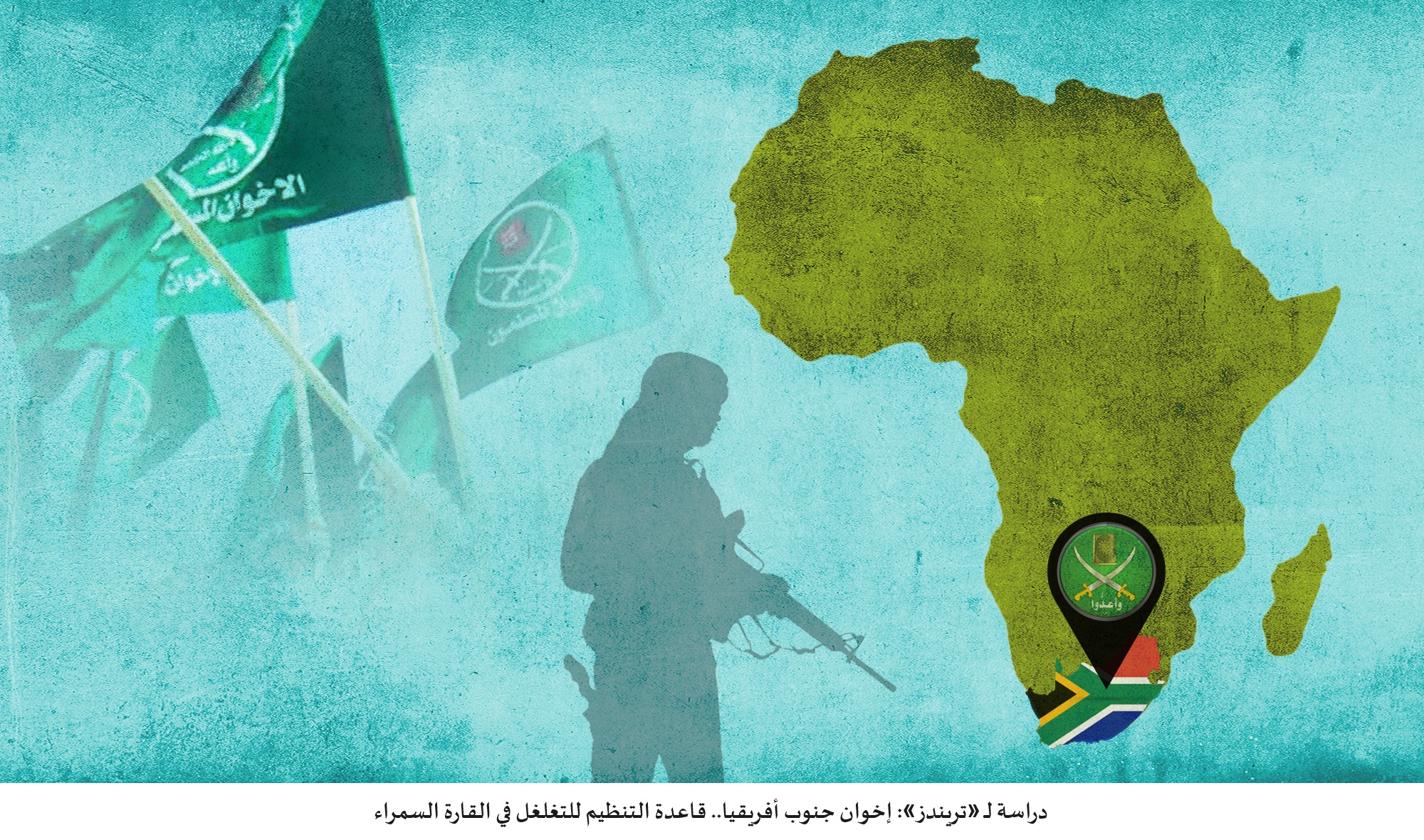Trends Research and Study released a study entitled “The Brotherhood in South Africa: the organization’s base to penetrate the African continent.” The study explores the role of the Muslim Brotherhood’s branch in South Africa, which is one of the most active branches of the group in the African continent.
The study, conducted by Ahmed Sultan, a researcher in political Islam movements, explained that the Brotherhood’s branch in South Africa plays a significant role in financing the group’s activities and spreading its message across the African continent, through a range of activities, including social, cultural, religious, and political activities.
The study indicated that following the recent disputes that broke out between the two fronts of the Brotherhood, they entered into an intense struggle to control the organizational body of the group. Amid this state of competition, the Brotherhood branch in South Africa received great attention from both competing fronts. This is because of the prominent role of the Brotherhood branch in South Africa in financing the group’s activities, and expanding its project in the African continent.
The study reviewed the history of the Brotherhood’s presence in South Africa, that goes back decades, as it began with a group of Egyptian students who emigrated after the July 1952 revolution.
The study confirmed that the Brotherhood branch in South Africa enjoys close relations with various social and political components in the country. This enables it to reach large segments of the society. The Brotherhood branch in South Africa is well funded, which enables it to carry out large-scale activities.
The study concluded that even if the current organizational disputes are not resolved, the Brotherhood’s South African branch will remain one of the group’s most effective branches, and its activities are not expected to be affected by these disputes.
The study recommended the need for concerted efforts by Arab and Islamic countries to monitor the activities of the Brotherhood branch in South Africa. They should strengthen the capabilities of moderate Arab and Islamic religious and cultural institutions in South Africa to combat the extremist ideology promoted by the Brotherhood, and support activities that promote the values of tolerance and peaceful coexistence in South Africa.



